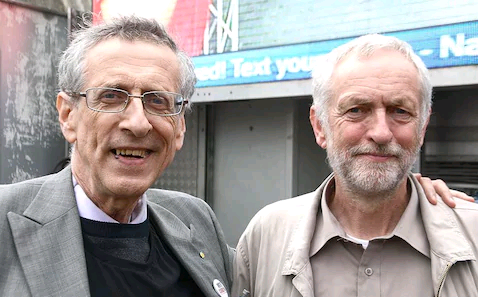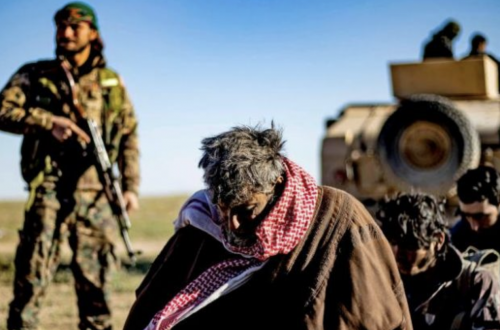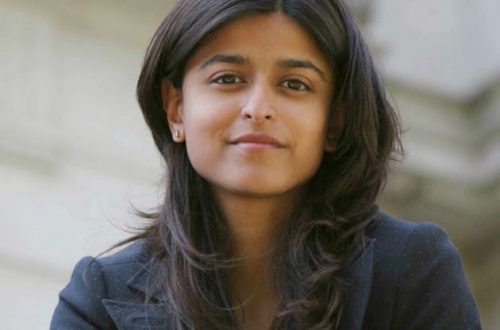This is a cross-post by John Sargeant at homo economicus
Imagine a conference where over two thirds of the speakers are women. From across the world. Artists, professors, authors, journalists, human rights activists. One who feared having children because of the threat to their lives.
You are told in no uncertain terms the consequence of colonialism, and how the war on terror has deliberately strengthened extremists. It happened during the Cold War. History repeats itself, with insanity expecting a different result.
That while attending the conference, you do not just deal with what hits the media. You hear about projects such as in Afghanistan, where women had to make their own centre (as no men would come near them to help work), yet their improvised skills were so good they were then asked if they would paint the mosque.
Moved when another recounts being abducted and held hostage the last time she attended such a conference as this; the fear from her voice pulling on your heart strings. Tears dripping onto your iPad as you blatantly tweet in your own name what is being said without a second thought of your own safety. That the song from a band in Indonesia called “Sister In Danger” is not lyrical invention. When protestors of a movie in Tunisia move their hand across their Adam’s apple in a slicing motion it is not just bravado.
A professor recounts hearing shots ring out on campus one evening. He rushed out to a former student who had become a faculty member. Bleeding to death, no other staff came to aid one of their own. There is no one else from the university either to join the professor at the mourning prayers. The assassinated man is Ahmadi, and even in death his blood can not wash away his heresy in a Pakistan State that declares them non muslims. He never was one of them after all, in life or death.
did not have to imagine these voices – because Maryam Namazie gave them a platform. The conference was filmed and you can read my live tweets clicking on the tweet above, and following my timeline.
Please let me make this appeal. Regardless of what you think of God, how that manifests in your devotion or derision, humanity suffers too much in a brief time on earth. This is not an academic debate with timed responses. Celebrities on talk shows making points for applause or laughs.
The oppression done by extremists and religious nationalists is the concern of all humanity. It is by no means a complete solution to the hell on earth that exists. Only a beginning, and it starts with the idea that humanity is one and equal to each other.
Sarah adds: Do visit John’s blog for some additional tweets and images. Here are my own thoughts about the first day of the conference.
The progressive Guardian singled out Dawkins and Grayling as the speakers most worthy of note at this conference. However, as John Sargeant points out, well over half the speakers were women, and very many were from non-Western countries – from Tunisia, Afghanistan, Bangladesh and Turkey, for example. Here are a few reflections on the first day of this memorable conference.
Marieme Helie Lucas spoke passionately against the notion that secularism was a Western ideal and that non-white/Muslim secularists were somehow ‘sellouts’. Kenan Malik echoed this point by pointing out that political multiculturalism fails to acknowledge the diversity of minority communities. Aliytah Saleem described the way her free expression was chilled in an Islamic boarding school in Britain – ironically she experienced a more liberal atmosphere when she then went to school in Pakistan. She expressed her frustration at the way in which discussion of the Trojan Horse affair focused so strongly on the fact these were state schools, when children at private schools are equally disadvantaged by a narrow religious ethos. We should attend more to the rights of the child, not just the parents, difficult though it is to find the the right balance. I think it was Kenan Malik who pointed out that encouraging faith schools in the name of ‘diversity’ does not facilitate a ‘diverse’ experience for the individual, but may instead close off experiences and opportunities. Chris Moos spoke eloquently about the way the NUS and student feminist groups have been shamefully soft on extremism when the perpetrators are Muslims rather than the traditional far right. Pragna Patel, of the excellent Southall Black Sisters, also talked about problems on campus, singling out the deplorable UUK guidelines on segregation.
Many speakers told us of the advances made by theocratic forces. Safak Pavey gave a very forceful talk on the way in which Erdogan, albeit more subtly than some other rulers, is furthering an Islamist agenda, through the education system and the use of clerical schools, for example. Another very powerful presentation was made by Nadia El Fani, a Tunisian film-maker who cannot now return to her country because of the violent reactions to her film ‘Neither Allah nor Master’. We saw footage of angry protests by those determined to stop her voice being heard, as well as evidence of the death threats she received.
There were a few tensions in the air. One related to the relationship between secularism and the left/right divide. The conference’s full title identified the problem as the ‘religious-right’, and the choice of speakers was decidedly left-leaning – when one speaker did acknowledge the faint possibility of allies on the ‘centre-right’, the hesitance and reluctance in her voice were very apparent. Surely there isn’t the slightest reason to expect people on the centre-right to be any less supportive of secular values that leftists and liberals? In fact …
However other speakers, no less on the left, did acknowledge the problem. Peter Tatchell pointed out that ‘some on the left are now the new right’. Gita Sahgal criticised Guardianista ‘progressives’, and Caroline Fourest expressed her anger at liberal journalists who criticised those who published the Danish cartoons rather than those who carried out, or threatened, acts of violence.
Another fault line emerged between religious secularists and ‘faitheists’, on the one hand, and newer atheist types/laicists on the other. Karima Bennoune offered a moving tribute to those who have died because of their brave support for secular values, and chose, partly in reaction, she explained, to some recent comments by Bill Maher, to focus on Muslim campaigners – people like Salman Taseer, Samira Salih al-Nuaimi and Mohamed Brahmi. By contrast, A. C. Grayling, in a highly entertaining presentation, spoke slightingly of religion. He explained that he was bringing up his daughter as an atheist and said he hoped we were seeing the final ‘thrashings of that monster’, referring, not to extremism, but (if I understood him correctly) to religion in general. Perhaps Elham Manea had his speech in mind when she reminded us, later in the afternoon, that you don’t have to be an atheist to be a secularist. I was sorry she didn’t receive more applause for making that point.
But, as John reports (and I’m sorry I couldn’t be there for the second day), this was an inspiring conference, and an unparalleled opportunity to hear first hand about the challenges facing secularists around the world.


